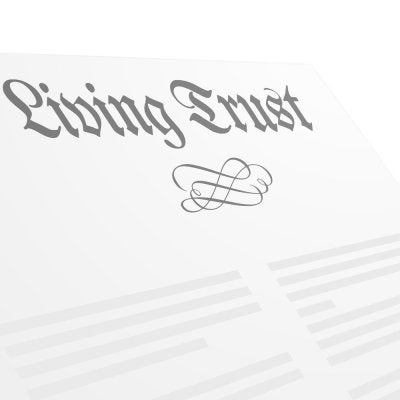-
What You Need to Know About Mortgage Forbearance
 The coronavirus disease 2019 (COVID-19) has affected our world on unprecedented levels. And homeowners are no exception. So, in 2020, Congress passed the Coronavirus, Aid, Relief, and Economic Security Act, or CARES Act. As part of the CARES Act, if you cannot make payments on your home, you can find relief with mortgage forbearance.
The coronavirus disease 2019 (COVID-19) has affected our world on unprecedented levels. And homeowners are no exception. So, in 2020, Congress passed the Coronavirus, Aid, Relief, and Economic Security Act, or CARES Act. As part of the CARES Act, if you cannot make payments on your home, you can find relief with mortgage forbearance.What Is Mortgage Forbearance?
Mortgage forbearance is an agreement between a mortgage servicer (the company that manages your loan) and a delinquent borrower. The borrower is typically struggling to make payments. The lender agrees to allow you to pause or reduce mortgage payments for a limited time, providing temporary respite.
Who Is Eligible for Forbearance?
You qualify to request forbearance if:
- You have experienced financial hardship on account of the coronavirus pandemic, and
- You have a mortgage that is federally backed, which includes HUD, FHA, VA, USDA, Fannie Mae, and Freddie Mac loans
Note- If your mortgage isn’t federally backed, servicers may have comparable options. You should discuss payment relief options with the company that manages your loan.
What Documentation Is Required?
There is no documentation required proving hardship beyond a statement that you’re suffering from such a hardship. If you can, however, continue to make mortgage payments, you should do so.
How Long Does Forbearance Last?
If you’re a homeowner who has a federally backed loan, you have the right to request and receive a forbearance period for up to 180 days. In addition, you can request an extension of forbearance for up to another 180 days, totaling 360 days. However, be advised that other limitations can apply. Also:
- If you have a Fannie Mae or Freddie Mac mortgage, you may ask for up to two more three-month extensions, up to a total of 18 months of forbearance
Note – Your initial forbearance documentation must be received by February 28, 2021, to qualify. - If you have a HUD, FHA, USDA, or VA-backed mortgage, you may ask for up to two more three-month extensions, up to a total of 18 months of forbearance
Note – Your initial forbearance documentation must be received by June 30, 2020, to qualify.
When Is the Deadline for Applying?
- If you have a federally-backed loan, or if you’re the owner of a multi-family rental with a loan backed by the government, you can apply through September 30, 2021
- There is no current deadline to request initial forbearance for a home subsidized by Fannie Mae or Freddie Mac
Requesting Forbearance
Simply contact your mortgage servicer, requesting a forbearance.
Future Payments, Loan Interest, Foreclosure, and Terms
- It doesn’t reduce or erase the amount that you owe on your home
- After the established period, the borrower must resume total payments, plus additional amounts to be current (e.g., principal and interest, insurance, and taxes)
- Under this legislation, you won’t be reported to credit bureaus or charged late fees
- If you’re in forbearance, you may be able to avoid foreclosure
- Agreement terms vary depending on lender and situationNote – both the Consolidated Appropriations Act (CAA) of 2021 and the American Rescue Plan of 2021 include additional funding for housing relief.
While in Mortgage Forbearance, Can I File for Bankruptcy?
The CARES Act supplemented new language to the bankruptcy code and has given individuals struggling with their mortgages more options. Bankruptcy courts are now permitted to discharge the debt if the filer has entered into forbearance or has an adjusted mortgage loan. If your debt burden is still too high, you can consider filing for Chapter 13 bankruptcy.
Note – if Congress doesn’t renew these provisions, these changes may no longer be in place.
The CARES Act has helped provide relief for individuals struggling to make their mortgage payments. So from job loss and illness to other COVID-19-related circumstances, if you’re unable to make payments on your home, make your appointment with Mummert Law today! We are available for a consultation, at which time we’ll sit down together, evaluate your position, and determine the best way to proceed. So don’t go it alone when it comes to finding relief during this unprecedented time.
-
Estate Plans… The Importance of Hiring a Lawyer to Help You
Imagine this… if you can. Your life is just beautiful. You’re working, spending time with friends and family. The farthest thing from your mind is estate planning. Everything’s going so well! Then, out of nowhere, something happens to upset the status quo. At first, it might be no big deal. Then, it starts to spread and affect other areas of your life.
With the pandemic of Coronavirus on our doorstep, more and more people are wondering, “What if?” In this article, we will explore options and ideas for having the peace of mind that comes with estate planning.
Do You Have Your Basic Documents Completed?
There are three essential components to estate planning that apply to everyone, and these documents must be completed first as part of any estate plan.
Your Last Will and Testament
This document sets into writing how you intend or desire your estate to be distributed upon your death. Careful planning will prevent unnecessary drama at the time of your passing. If you should die without a will, the state will decide how your estate will be handled.
Power of Attorney
With a power of attorney, a “principal” (the person granting power of attorney) assigns these rights to an “agent.” It’s essential to understand the distinction between two different types of powers of attorney. A limited power of attorney assigns an agent and gives them the ability to act for the principal only in certain circumstances. A general power of attorney allows them to conduct ALL business transactions for the principal. In Maryland, written powers of attorney are considered “durable,” which means they remain in effect even if the principal is no longer able to make decisions on their own.
Advance Medical Directives
This particular power of attorney designates someone to act on your behalf when it comes to making medical decisions for you when you are unable to. Typically, a medical professional, or a group of professionals, will make a judgment when the advance medical directive is in effect.
Planning Your Estate Online… Do You Need a Lawyer?
Many lawyers, including this office, offer estate planning via video conferencing apps. If you are uncomfortable leaving the house, we can help you to assemble the necessary documents by discussion over a teleconferencing app, and prepare them to your specifications
When you are planning your estate online instead of in person, you might think it makes sense to use an online estate planning software. It may be tempting to save a little money and go this route. However, there are many aspects of estate planning that you will miss if you decide to take advantage of this option.
What Are the Advantages of Hiring a Lawyer for Estate Planning?
Once your estate planning is complete with your attorney, you have the peace of mind that everything is in place should the worst happen. Completing a form online may leave you thinking, “I guess it’s okay.” Consider the following advantage of hiring a lawyer to help you.
You Can Ask A Lawyer Questions
Unless you’ve done this several times before, you’re likely to have a lot of questions. These can be answered on the spot during a meeting with an attorney.
A Lawyer Will Know and Be Able To Explain Alternative Solutions
If you have no idea of the alternatives, how can you be sure that you’re making the right decisions? An attorney can explain different options to you so that you can consider your best course of action.
A Lawyer Can Explain any Legal Terms You Don’t Understand
When you’re dealing with legal documents, it’s not unusual to get overwhelmed with all the legal terminology. Getting an explanation of legal terms in everyday language can help you from misunderstandings later.
-
Designating a Guardian and Custodian in Your Will
In the state of Maryland, a child is a minor until he reaches the age of 18, after which he is considered an adult. If you have a minor child under the age of 18, naming a guardian or custodian in your will is an important step toward ensuring he is cared for by an individual you trust in the event that you pass away before your child reaches adulthood. Regardless of whether you have already written a will in Baltimore or are preparing to complete this important task, reviewing or determining your choices for guardian and custodian is important for your child’s future.

Designating a Guardian
A guardian is an individual to whom your child’s care is transferred if both parents pass away. Naming a guardian in your will means you want this person to care for your child as if they were a parent until your child is no longer a minor. Guardians perform all parental duties, including making decisions regarding a child’s upbringing, education, religious teachings, and medical care, so it’s important to choose a person that you trust with your child’s wellbeing. It’s also important to note that if the individual named in your will is not your child’s surviving parent, your wishes could be overridden in court and custody provided to the remaining parent if a judge feels it is the best situation for your child.
Designating a Custodian
Because minor children cannot inherit property or financial assets, you should also name a custodian in your will to handle your child’s inheritance until he reaches a certain age or meets a specific milestone, such as graduating from college. The individual named in your will as your child’s guardian can also serve as his custodian, or you may choose a different person to handle your child’s finances and assets as the custodian. Thus, if you feel the person you want as your child’s guardian is not the best individual to manage his inheritance, you can opt to name a different custodian to protect your child’s financial future.
-
Spotlight on No-Contest Clauses
When you visit an estate lawyer in Baltimore to have your last will and testament drawn up, you might think that the document is beyond anyone else’s ability to challenge. But in fact, after a person dies, a will may be challenged in court. A disgruntled relative might try to claim that the will isn’t valid, for example. This is why you might want to talk to your estate lawyer about including a no-contest clause in your will.
A no-contest clause cannot definitively prevent anyone from challenging the validity of your will in court. However, it can certainly discourage your heirs from trying to do so. For example, if you leave your child $10,000 and your child feels that he or she should have received more, the presence of a no-contest clause means that if your child contests the validity of the will, he or she will receive nothing. On the other hand, if you entirely disinherit the child, then he or she has nothing to lose by attempting to challenge the validity of the will.

-
How Living Trusts Work
One of the methods people use while estate planning to avoid probate is a living trust. A living trust allows you to pass assets outside of probate to your beneficiaries while you are still alive. When building a living trust, it is important to work with an experienced estate lawyer in Baltimore to ensure that it is established correctly.
Watch this video to learn more about living trusts. Because probate can be lengthy and expensive for your beneficiaries, many people focus on taking steps to avoid it while going through the estate planning process. Living trusts are also beneficial for people who wish to avoid probate because of privacy concerns or who want to ensure certain assets get to the intended beneficiaries by passing them outside of the probate process.

